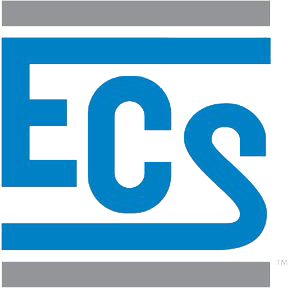ECS performs a variety of in-situ and lab testing of materials to perform our evaluations and to assist other design professionals such as structural engineers and architects. In some cases, ECS will be hired directly by the property owner to provide investigative and assessment services. In other cases, the owner may hire an architect or a structural engineer who needs our assistance to perform field or lab work while they maintain the overall responsibility for the assessment. In either case, ECS stands ready to help.
One example is parking garage assessments during which ECS will routinely test the concrete for chloride ion content and depth of carbonation as a way to predict the remaining serviceable life of the structure and provide recommendations for repairs or maintenance. Another example is forensic projects where we may be asked to provide material testing so that a structural engineer can determine whether there is sufficient excess capacity in the members investigated to support a new use or perhaps a modification. In other cases, material testing may be performed as a means to determine the root cause of a failure and provide recommendations for repair.
Please contact us with any questions you may have regarding materials testing and evaluation.
Contact Us
Some of the tests that we routinely perform include:
- Concrete testing (compressive strength, chloride ion content, permeability, sampling for petrographic analysis)
- Steel testing (tensile, hardness, weldability)
- Latex and epoxy bond overlays
- Carbon fiber reinforcement
- Concrete moisture testing (RH or CaCL)
- Unsound concrete surveys
- Depth of carbonation testing
- Anchor bolt and/or rebar pull out testing
- Asphalt coring and testing
- Coating thickness measurements
- Half-cell potential testing
- Masonry compressive strength testing including in-situ testing (flat-jack)
- Rapid chloride permeability testing
- Structural component load testing (ex. beams, slabs, walls)
- Ground penetrating radar (GPR)
ECS performs a variety of in-situ and lab testing of materials to perform our evaluations and to assist other design professionals such as structural engineers and architects. In some cases, ECS will be hired directly by the property owner to provide investigative and assessment services. In other cases, the owner may hire an architect or a structural engineer who needs our assistance to perform field or lab work while they maintain the overall responsibility for the assessment. In either case, ECS stands ready to help.
One example is parking garage assessments during which ECS will routinely test the concrete for chloride ion content and depth of carbonation as a way to predict the remaining serviceable life of the structure and provide recommendations for repairs or maintenance. Another example is forensic projects where we may be asked to provide material testing so that a structural engineer can determine whether there is sufficient excess capacity in the members investigated to support a new use or perhaps a modification. In other cases, material testing may be performed as a means to determine the root cause of a failure and provide recommendations for repair.
Please contact us with any questions you may have regarding materials testing and evaluation.
Contact Us
Some of the tests that we routinely perform include:
- Concrete testing (compressive strength, chloride ion content, permeability, sampling for petrographic analysis)
- Steel testing (tensile, hardness, weldability)
- Latex and epoxy bond overlays
- Carbon fiber reinforcement
- Concrete moisture testing (RH or CaCL)
- Unsound concrete surveys
- Depth of carbonation testing
- Anchor bolt and/or rebar pull out testing
- Asphalt coring and testing
- Coating thickness measurements
- Half-cell potential testing
- Masonry compressive strength testing including in-situ testing (flat-jack)
- Rapid chloride permeability testing
- Structural component load testing (ex. beams, slabs, walls)
- Ground penetrating radar (GPR)
